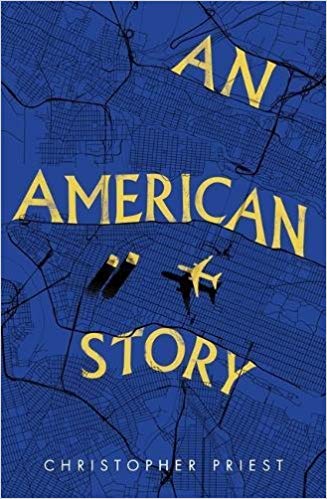 This week marks the publication of Chris’s fifteenth novel, An American Story. As always, the business of living and writing alongside Chris as he worked on the book – seeing the novel take shape – has been a unique privilege. I’ve been party to some amazing discussions, watched some fascinating footage, discovered a renewed interest in a subject that, truth be told, should be preoccupying each and every one of us more than it does.
This week marks the publication of Chris’s fifteenth novel, An American Story. As always, the business of living and writing alongside Chris as he worked on the book – seeing the novel take shape – has been a unique privilege. I’ve been party to some amazing discussions, watched some fascinating footage, discovered a renewed interest in a subject that, truth be told, should be preoccupying each and every one of us more than it does.
In common with many novels, An American Story had a peculiar and protracted genesis. Chris had long been interested in 9/11 as subject matter, with the factual anomalies that began to proliferate in the reporting of the attacks seeming almost as worthy of attention as the attacks themselves. However, it was not until personal circumstances intervened that he began to see a way to write about it. The dedicatee of An American Story, Don Greenberg, is an American magician Chris met when they were both serving as guest judges of the Stage Magician of the Year competition organised by the Magic Circle. Don also happens to be an airline pilot of some thirty years experience, a fact that proved even more interesting to the both of us than his life in magic. Over lunch one day while we were still living in Hastings, we took the opportunity to quiz Don about his work as a pilot, and so it happened that he began, almost as an afterthought, to tell us about his experiences on 9/11.
Names and places have been changed, of course, but the tense and powerful sequence that grounds the events of An American Story in lived reality – Ben’s flight on September 11th from Charlotte to Detroit – is drawn directly from the story Don told us. Even the late-running Aussie passenger is real – many readers will remember how flight delays due to late boarding were not only a thing back then, but an annoyingly common one. Indeed what Chris found so compelling about Don’s story was the background normality of it, the irruption of the extraordinary into the routine. Here at last was a way to write about 9/11.
His original idea was for a non-fiction book, a diary of the day told from the point of view of people – like Don, like the passengers on his plane – who were not directly affected by the attacks but who found themselves nonetheless caught up in the seismic ripples the attacks generated. An exhibition on the theme of false memory at the Freud Museum in London altered the direction of travel – what if someone believed they had been involved in 9/11, but really hadn’t been – and with the proliferation of ‘fake news’ on both sides of the Atlantic it became increasingly clear to Chris that the subjects he wanted to talk about would be most effectively tackled through his more accustomed medium, fiction.
The result is a book of uncommon power that speaks uniquely to our times. I cannot think of any other novel in the still-developing literature of 9/11 that seeks to address not just the horror and tragedy of what happened – the facts on the ground – but the consequences even as they continue to affect and shape the political realities of the present day.
Readers should note that in the novel’s title, the words ‘American’ and ‘story’ are of equal importance.